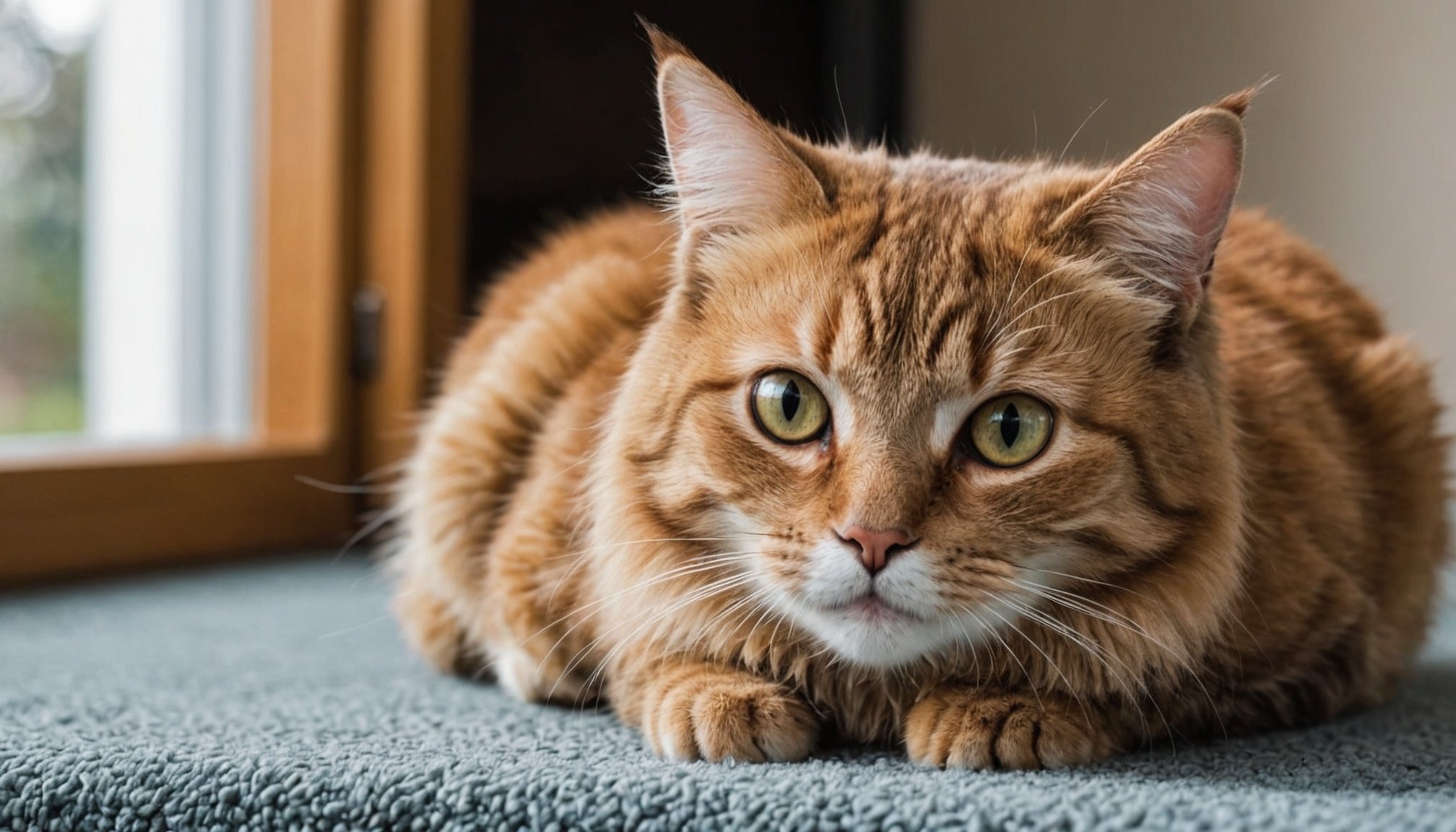Understanding Special Needs Cats
Adopting special needs cats can be a deeply rewarding experience, but it’s imperative to understand their unique requirements. These cats might have medical conditions, physical disabilities, or behavioral challenges that demand specific attention. Due to these characteristics, choosing to bring a special needs cat into your home requires careful consideration to ensure you can meet their needs.
Characteristics of special needs cats vary greatly. Some might be blind or deaf, while others could have mobility issues or chronic illnesses such as diabetes or FIV (Feline Immunodeficiency Virus). Behavioral issues might stem from past trauma, leading to anxiety or social difficulties. Each of these traits requires different levels of care and patience.
Additional reading : Transforming feline lives: effective techniques to reduce anxiety and enhance sensory comfort for your cat
Understanding individual needs is crucial for providing a conducive environment. Special needs cats can thrive with regular veterinary care, a safe home setup, and, crucially, a lot of love and patience. It’s about shifting focus from limitations to possibilities, and seeing the unique joy each cat brings to the home. Adopting such a cat isn’t just a commitment; it’s a promise to embrace their distinct life journey, making the endeavor all the more fulfilling.
Assessing Your Home Environment
When creating a safe and accessible living space, it’s paramount to consider home modifications that cater to mobility and comfort. This might include adjusting furniture arrangements for easier navigation and ensuring that walkways are free of obstructions, especially in homes with pets. Start by identifying potential hazards such as slippery floors, loose carpets, or confusing furniture layouts. These can increase the risk of accidents, making the space unsafe.
In parallel : Designing a secure and stimulating outdoor haven for cats affected by feline leukemia virus (felv)
For a pet-proofing approach, focus on securing wires and cords, storing hazardous materials out of reach, and using barriers in restricted areas. Pets, while wonderful companions, can inadvertently cause or suffer from accidents if spaces are not adapted accordingly.
To enhance comfort, consider ergonomically designed furniture that supports mobility aids like wheelchairs or walkers. Additionally, installing grab bars in bathrooms can significantly aid individuals with mobility challenges. Proper lighting also plays a critical role, reducing strain and minimizing the risk of stumbling in dimly lit areas.
By evaluating these elements, you can create an environment that is not only comfortable but also meets safety standards, ensuring peace of mind for everyone at home.
Financial Considerations
Adopting a pet involves more than just an emotional commitment. Budgeting is crucial to manage the initial and ongoing expenses effectively. When estimating initial adoption costs, consider the adoption fee, which varies depending on the breed and source. Additionally, initial veterinary care including vaccinations, microchipping, and spaying or neutering should be factored into your budget.
Veterinary care doesn’t end with the initial visit. Understanding long-term medical expenses is essential, as these can include regular check-ups, vaccinations, and potential emergency visits. Specialized care might also be required depending on your pet’s health needs, so it’s advisable to set aside funds specifically for these medical expenses.
Moreover, budgeting for ongoing expenses such as specialized care and supplies is necessary for your pet’s well-being. Food, grooming, toys, and regular preventive treatments like flea and tick control are part of the recurring costs. By creating a detailed budget, you can ensure all aspects of your pet’s health and happiness are catered to while simultaneously protecting your financial health. Aim to anticipate these expenses with precision, enabling you to make informed decisions throughout your pet ownership journey.
Integration with Other Pets
Integrating a special needs cat into a multi-pet household can be a rewarding experience with the right approach. It’s important to prioritize gradual introductions and behavioral training to ensure a harmonious environment. Start by creating a separate space for the new cat, allowing them time to acclimate to their surroundings. Utilize scent swapping techniques, such as exchanging bedding between pets, to help them get familiar with each other’s scent without direct contact.
Recognizing the significance of socialization and patience cannot be overstated. Gentle, supervised meetings should be the next step, rewarding positive interactions to encourage friendly behavior. This process might take days or weeks, depending on the pets’ personalities and comfort levels. Remain attentive to each animal’s reaction, withdrawing if any sign of distress or aggression occurs.
Additionally, it’s crucial to recognize and address potential jealousy or territorial issues. Spend quality time with each pet individually to reassure them of their place in the household. In multi-pet households, ensure access to resources like food, water, and litter boxes, preventing competition and conflict. Employing these strategies fosters a harmonious and socialized atmosphere for all furry companions.
Emotional and Time Commitment
Considering the decision to adopt a special needs pet involves a profound evaluation of emotional readiness. Are you prepared to offer consistent care and navigate potential challenges? These pets often require unique considerations that can test even the most compassionate caregiver. Reflect honestly on whether you can meet their specific needs every day with patience and compassion.
Daily routines will invariably shift as you adjust to a new pace of life with your special companion. This shift can involve everything from increased vet visits to tailored feeding schedules. It’s crucial to assess your current obligations to ensure that the pet receives the care and attention they deserve throughout the day.
Support plays a pivotal role in ensuring both you and your pet thrive. A robust network of caregiver support from friends and family can make a significant difference in easing the responsibilities involved. They can assist in daily tasks or offer some respite to prevent caregiver burnout.
Having open dialogues with loved ones about your new responsibilities can strengthen your support system, making the journey rewarding and harmonious for all involved.
Resources and Support Groups
When considering adoption shelters for special needs animals, it’s crucial to identify facilities that specialize in their care. These shelters often have tailored environments and staff trained to meet the unique needs of these animals. Additionally, they offer valuable insights into what prospective caregivers should expect.
The role of community support groups cannot be overemphasized. These groups serve as a vital network for caregivers of special needs animals, providing emotional backing, shared experiences, and practical advice. Being part of such a community can ease the journey by offering both empathy and knowledge-sharing that might otherwise be difficult to access.
In an increasingly digital world, online resources also play an essential role. They provide educational materials, forums, and blogs specifically focused on the care of special needs animals. Such resources are invaluable for continuous learning and for staying updated on best practices and innovative care methods.
By engaging with these varied resources, caregivers can better navigate the intricacies of caring for special needs animals, ensuring a rewarding experience for both the animal and themselves.
Understanding Special Needs in Cats
Caring for special needs cats requires understanding their unique challenges and characteristics. These cats may face a variety of types of special needs, which can include physical disabilities, chronic illnesses, or behavioural issues. By recognising these differences, owners can provide a tailored environment to ensure their cat’s well-being.
Types of special needs in cats commonly encompass physical conditions like blindness, deafness, or mobility impairments. Chronic illnesses such as diabetes or kidney disease also fall under this category. Each condition presents its own set of challenges, requiring specific care and attention.
Characteristics of special needs cats may vary widely depending on their condition. For instance, a visually impaired cat might rely more on its sense of smell, while a cat with mobility issues may need assistance moving around safely. Understanding these characteristics is crucial for providing proper care.
Recognising and understanding these needs not only enhances the quality of life for these cats but also strengthens the bond between the cat and its owner. By acknowledging the special needs of their feline companions, owners are better equipped to manage their pets’ health and happiness, ensuring they live fulfilling, enriched lives.
Lifestyle Modifications for Special Needs Cats
When caring for a special needs cat, making thoughtful lifestyle changes is crucial to ensure their comfort and well-being. Home adaptation plays a significant role in facilitating a safe and accessible cat environment. For example, installing ramps can help cats with mobility issues reach their favourite spots without the challenge of jumping. Additionally, providing non-slip surfaces aids in preventing injuries for cats with balance difficulties.
Creating a harmonious environment requires considering the needs of all pets in the household. Designated spaces can be established to provide special needs cats with a retreat when they require solitude. This minimizes stress and promotes a sense of security. Moreover, it’s important to ensure that feeding areas and litter boxes are easily reachable for cats who might struggle with standard setups.
Striking a balance between the needs of your special needs cat and other pets involves establishing a routine. This fosters a predictable environment, making it easier for all pets to coexist peacefully. By focusing on these lifestyle changes and adapting your home, you create a nurturing setting that allows your special needs cat to thrive while maintaining harmony among all household pets.
Care Requirements for Special Needs Cats
Understanding the cat care requirements for special needs felines involves setting up thoughtful daily routines and ensuring consistent veterinary care. These cats often have unique needs that can vary widely. It’s essential to establish a daily routine that accommodates their physical and emotional requirements. This might include scheduled feeding times, medication administration, or specific exercises to support mobility.
Regular veterinary care is crucial. Special needs cats may require more frequent vet visits to monitor health conditions or adjust treatments. Keeping a strong relationship with your vet enables immediate responses to any changes in your cat’s health. Veterinarians can also offer tailored advice for managing your cat’s condition.
Nutritional considerations are key in managing special needs cats. Depending on the specific health issues, they may need specialized diets. For example, hypoallergenic food can be beneficial for cats with allergies. Always consult with your vet before making any dietary changes to ensure the food provides all necessary nutrients. Proper nutrition supports overall health and can significantly enhance their quality of life. Implementing these strategies helps cater to the unique needs of special needs cats, ensuring they lead comfortable and fulfilling lives.
Medical Considerations for Special Needs Cats
Medical care for special needs cats requires a deep understanding of potential medical issues and the available treatment options. Cats with unique requirements may suffer from a range of conditions, including mobility challenges, chronic illnesses, and congenital disabilities. Being aware of these issues is crucial for implementing effective care plans tailored to each cat’s particular needs.
Special diets play a significant role in maintaining overall health, as they can help manage conditions like kidney disease, diabetes, and allergies. Veterinarians often recommend personalized diets to address these specific health challenges. High-quality, balanced nutrition can significantly enhance a cat’s quality of life.
The availability of specialists is an important consideration for pet owners. Specialists in feline medicine provide insights into unique medical care strategies that might not be available from general practitioners. These experts offer guidance on long-term management, ensuring that cats receive the best possible care.
Ongoing care is essential for the well-being of special needs cats. Regular veterinary visits and monitoring help detect any changes in health status early, allowing for timely interventions. Building a strong relationship with a veterinary team ensures continuous support and optimal care for these cherished companions.
Financial Aspects of Caring for a Special Needs Cat
Caring for a special needs cat requires careful financial planning. The cost of care can vary significantly depending on the specific needs of your pet. Routine medical care, specialised medications, and treatments can quickly add up, making it crucial for pet owners to create a detailed budget.
Begin by estimating the initial costs required for specialised medical assessments and treatments. Veterinary expenses, specialized diets, and potential modifications in your home environment can contribute to these costs. Additionally, budgeting for pets should include ongoing maintenance like regular veterinary checkups and potential emergency care.
Pet owners facing financial challenges may benefit from exploring financial assistance options. This can include pet insurance tailored for special needs animals, which helps manage expenses over time. Charitable organisations and non-profits might also offer grants or subsidies for veterinary care, easing the financial burden.
Finally, long-term financial planning is essential. Consider setting aside funds in a dedicated savings account specifically earmarked for your cat’s care. This not only ensures peace of mind but also offers a safety net to address unexpected expenses. Creating a comprehensive budget allows you to focus on providing your cat with the best possible care without compromising financial stability.
Emotional Readiness for Bringing Home a Special Needs Cat
Welcoming a special needs cat into your home requires emotional investment. Assessing the emotional readiness of all family members is crucial. Each person’s willingness and capacity to engage in this caregiving journey affect the overall family dynamics. Consider asking questions like, “Is everyone in the family prepared to adapt to the unique challenges and rewards of caring for a special needs cat?” Affirmative responses indicate a good starting point.
Creating a robust support system is equally significant. This could include consulting with veterinarians with expertise in special needs felines or connecting with support groups. Seeking such resources helps the family prepare for the journey ahead, ensuring no one bears the emotional burden alone.
Reflecting on personal stories enriches understanding. Many families share how the emotional challenges initially posed by adopting a special needs cat turned into profound sources of joy and learning. They often describe evolving family dynamics that become more inclusive and empathetic over time. These shared experiences highlight that while the journey requires emotional readiness, it fosters deeper connections and resilience within families.
Resources for Prospective Special Needs Cat Owners
Adopting a special needs cat can be a rewarding experience, filled with both challenges and profound fulfillment. Understanding where to find adoption resources and how to tap into community support is crucial for harmonious integration.
Numerous organizations, such as local shelters and national charities, are incredible resources for those interested in adopting special needs pets. Many provide specific programs and guidance aimed at finding the right match between pet and owner. They also offer educational materials that help future owners understand the unique needs and care requirements of these animals.
The internet is a goldmine of information on special needs cat care. Online communities and forums are invaluable for connecting with fellow pet owners, sharing experiences, and seeking advice. Here, community support often translates into a wealth of shared knowledge, stories, and encouragement.
For those wanting to delve deeper, a plethora of recommended reading materials—both books and reputable articles—covers topics ranging from specific medical conditions to behavioral challenges. These resources not only inform but also empower prospective owners with the competence and confidence needed for their new journey.











